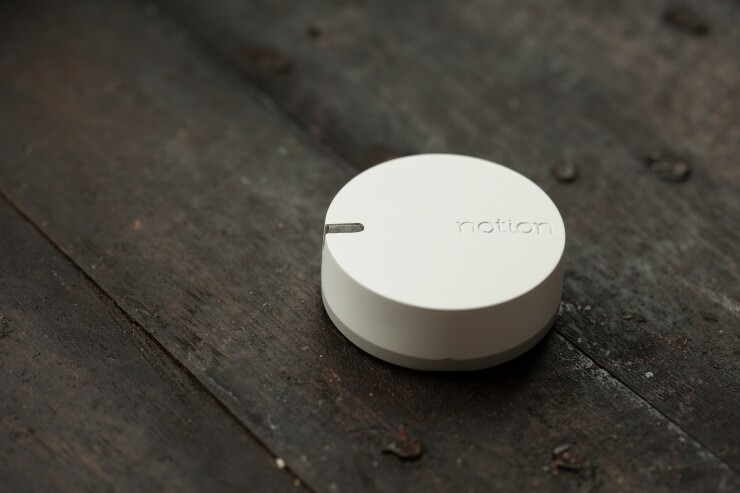The use of smart sensors continues to grow in popularity, helping homeowners and insurers detect the presence of anything from leaks, to fires and even security threats. In fact, smart sensors are just one of the smart home devices that will contribute to an estimated
Smart sensors are important tools that can help detect signs of trouble within a home (e.g., a water leak), to help prevent costly insurance claims. But what if rather than just detecting issues such as leaks, smart sensors could do more than just send you a notification? Instead, what if smart sensors could detect the leakand instantly schedule a plumber for repair? Or what if that same sensor could feed live information to an insurer on the leak, offering new insight into this type of risk? Smart sensors have the ability to offer insurers risk reduction and long-term return on investment (ROI) in claims reduction while benefiting millions of homeowners through new, proactive monitoring and remediation methods.
Let’s take a look at three ways smart sensors will evolve in the not-so-distant future to make this a reality:
On-Demand Service
Today, you can get pretty much anything on-demand. There are brand new movies you can rent right from the comfort of your couch, services that automatically send you more cleaning supplies when you’re getting low, and even apps that deliver groceries straight to your door. Smart sensors should be no different. Right now, if a smart sensor were to detect a water leak in a basement or upstairs bathroom, a notification would be sent to the homeowner’s phone. From there, they have the option of tapping a button to contact a plumber for repair.
While this is a convenient feature in many ways, this type of solution requires action by the homeowner. Every second that it takes to see the notification and click the button to contact a plumber means that more water is leaking out and causing damage. Soon, smart sensors will eliminate that issue by allowing homeowners to opt into a program where an emergency service provider can be notified as soon as any trace of water hits a sensor. This on-demand repair service can also be applied to smoke alarms (e.g., notify the fire department), or even temperature control (e.g., take immediate action if pipes are at risk of freezing).
Smart Leak Detection
The ability for smart sensors to detect leaks is an important tool that homeowners are already taking advantage of across the country. However, insurtechs have
What does this mean? Currently, smart sensors do a great job of notifying homeowners and their insurers of when a leak happens and where it is located, whether it’s in a garage, a bathroom, or a ceiling. Future smart sensors may be able to provide smart leak detection that will be able to monitor and analyze that data. This is critical information considering about one in 50 insured homes has a property damage claim caused by water damage or freezing each year, according to the
Concierge Services
Homeowners insurance has historically been a reactive business–something unexpected happens and a homeowner files a claim. Through smart sensors, insurtechs have changed the game by leveraging technology to enable a proactive element to insurance packages.
While the goal of smart sensors is to detect problems within homes before it’s too late, they can do so much more. Concierge services are a way that smart sensors could go beyond mere monitoring and detection and offer homeowners a solution. We all live busy lives, especially as we navigate what the “new normal” will look like post-pandemic. Concierge services connected to smart sensors could help homeowners with everything from seamlessly connecting to a certified plumber, to reminding them when it’s time to change the batteries in a smoke or carbon monoxide alarm.
By providing more proactive concierge touchpoints and services,
For many homeowners and insurers, smart sensor technology is still a new technology being adopted to monitor and reduce risk within the home. And for insurtechs, this is only the beginning of what’s possible through smart sensors in the future to unlock their full potential. With the new ability to tap into the sensor ecosystem and mitigate risk on a level never seen before, insurers everywhere will be armed with a new competitive advantage.






